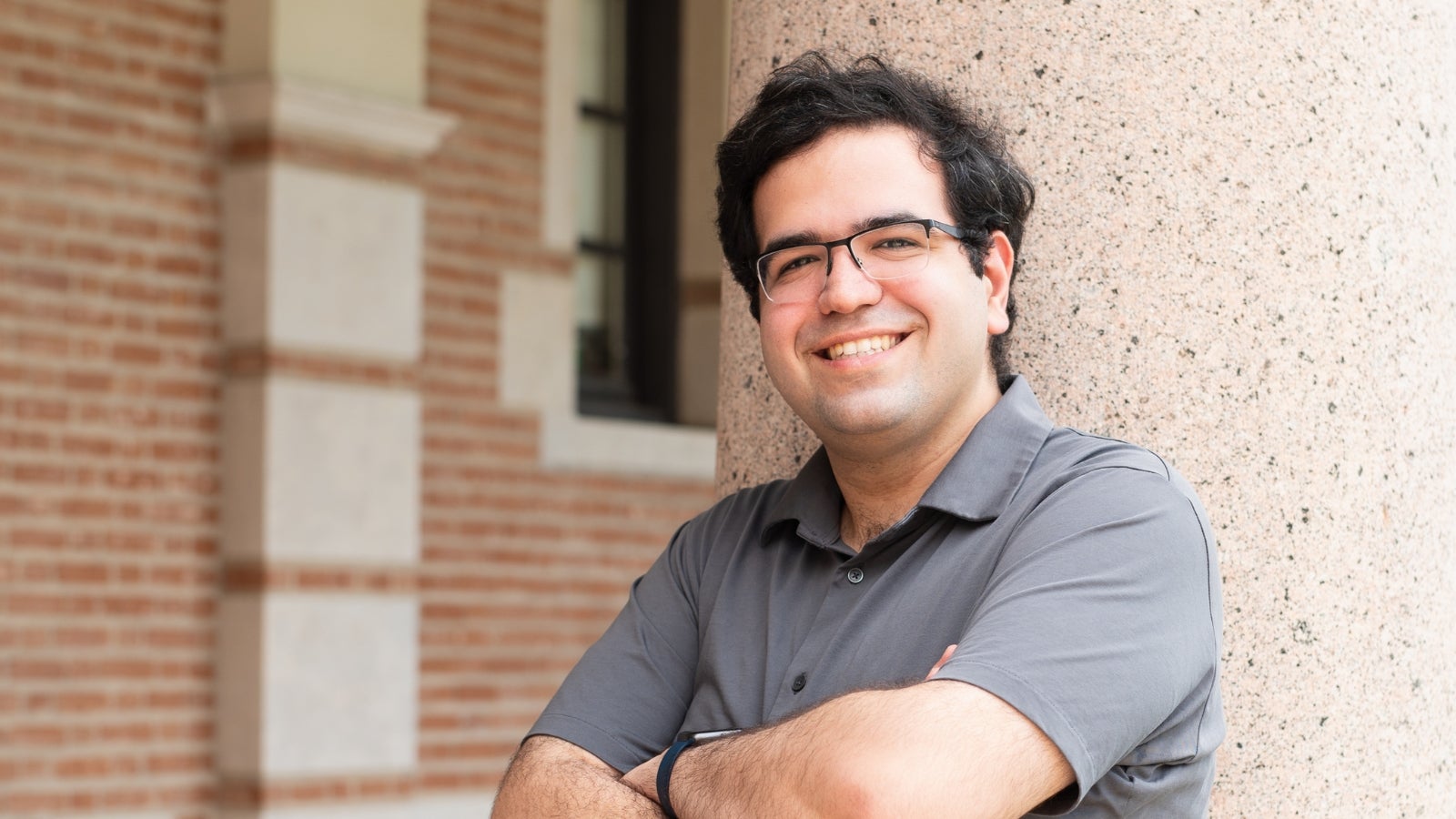Alireza Fallah, a new assistant professor at Rice CS, began his Ph.D. research at MIT working on optimization algorithms in machine learning. But over time, he said, “The more I was working on it, the more I was realizing that one less developed piece of the puzzle was how these algorithms interact with society.”
That consideration took hold and led to research focusing on market and mechanism design and economic theory — including issues around data and privacy. During the fall 2025 semester, Fallah is teaching the graduate seminar “Responsible AI for Society: Foundations, Incentives, and Policy.”
Fallah’s work goes beyond the content of an algorithm to explore its context. Typically, he says, algorithms are created and deployed, and it is only after the fact that people consider, “Maybe we should have thought about privacy better. Maybe we should have thought about fairness better. Maybe we should have thought about the impacts on different aspects of society.”
Asking these questions about algorithms, and the data they produce and consume, brought Fallah to market and mechanism design — a place where computer science and economics currently overlap.
It’s an area of study that has been evolving for decades, from Nobel Prize-winning economist William Vickrey’s auction theory to Nobel Prize-winning economist Roger Myerson’s groundbreaking work in mechanism design theory. At the beginning of the 21st century, said Fallah, computer science and game theory mechanism design intersected.
Computer science figures into mechanism design in two key ways, Fallah explained. First, “a lot of algorithms are used for things that were traditionally considered more economics.” Things like pricing and auction design “are now run by algorithms that are using data.” Second, “you train an algorithm that is later deployed to offer some services, which could have consequences for people and markets.”
Incorporating computer science into market and mechanism design, initially, “was developed not necessarily as a means of understanding” the interplay of algorithms, data, and society, “but trying to design algorithms for auctions. It was one way of designing the best algorithms for Google to run its auctions,” Fallah said. “It wasn't necessarily about privacy concerns.”
Then, about a decade ago, “data markets started getting attention. Questions around fairness and resource allocation started getting more attention,” he said.
To illustrate how data science has become inextricably linked to economics, Fallah used the example of having a credit card. With a credit card, “you have a service”; the credit card “offers you deals and cash back on certain products” to make the consumer happy. “But now,” he continued, “the credit card company collects your data, and they actually put it for sale.” A new restaurant owner, for example, can go to the credit card company and “use data about the transaction history of cardholders who spend a lot of money on food to target advertisements.
“It's different from classical econ, where you go and pay money and buy a car,” he said. “Now, you're getting service in exchange for your data. MasterCard doesn't pay you to collect your data. It's just a byproduct of their service. You might ask, ‘Hey, MasterCard, you're making money off of my data. Why aren’t you paying me?’ Data is like a form of transaction now. And algorithms are a means of these transactions.”
Fallah is eager to collaborate with the Economics faculty to explore the new economics of data. He is also excited about the interdisciplinary nature of this research, which is one reason Rice appealed to him. “I was looking for a place that is interested in having someone who does this sort of interdisciplinary work. And the department was open to that, and it was well received,” he said.
Another reason he is grateful to be at Rice is the CS department’s focus on responsible AI. “A lot of my work can be seen as responsible AI: questions around privacy, around fairness, around society, and what I call the ‘incentive award design’ of algorithms, because you're taking into account the incentives of humans,” Fallah explained. “And Rice has made responsible AI one of their major initiatives. It’s a place that’s thinking about this stuff seriously.”

